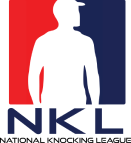Ad 00:06
can’t knock this is brought to you by the Sarris universe he s is now a serious Pest Control distributor making a positive impact on young businesses. Along with the broad product portfolio of top brands. We offer exclusives like the intercare mosquito trap, and with the resources like pro training, inventory manager and pest web and over 65 locations nationwide. We provide the products and insights to grow your business visit go dot vis sarris.com slash knock this to learn more. All right, everybody. This
Sam Taggart 00:39
is Sam Taggart. I am here with Danny Kerr. He is the man and I met Danny in roofing convention where we were on a panel together and I just need to I need to like explain this before you even start talking to me because it’ll help put the backstory the better way. So I’m on this panel, I’m sizing everybody up. I’m new to the roofing space. It’s this little convention, and I get asked to speak and and i’m up there with all the other panelists and I’m the last guy on the row right the panel is usually starts like interviewing everybody. And I’m like the last one and like every saying these answers and I look over and people are asking questions and half the answers like sucked and then all sudden Danny grabs the mic. And Danny like blows everybody away with this like bad answer. And I was like, “oh, okay, okay, we got we got some competition here”. I go, all right. I’m like sizing him up. I was like, dang, somebody actually knows how to like talk. And as I said behind it, like add on his shoulders like okay, I like this. And so immediately after this panel, I got up to Danny. He was like, I like you. I think we should be friends. Here was two years ago. Welcome to the show, man. I’m super excited to have you on.
Danny Kerr 01:52
Yeah, man. It was funny. I thought the exact same thing I was like this guy’s young he’s smart he’s motivated all hell that’s probably be his friend.
Sam Taggart 02:01
Okay, good. So since then Danny Kurt as spoke at D2DCon. He is the owner one of the founders of Breakthrough Academy and they are a consulting company that helps coach you know, business owners on processes and you know, HR and scaling and recruiting and instead of phenomenal job, and a lot of our clients use him and it’s it’s really cool how organized these guys are, when it comes to just the business organization element. I’ve been blown away with some of the Excel sheets they build and the templates. They’ve been a vendor in our events and you know, coming up did econ I guess I can make like a quick little announcement everybody’s been asking me they’re like what’s going on you know COVID this COVID that so we are doing DDD con this year, it’s limited to 500 people and it’s geared towards people that mean Danny work a lot with which is the business owners so we’re gonna make it much more so Danny, you’ll probably be pretty involved in my opinion, just because of what nature your beast and your background so we’re gonna have kind of more 500 business leadership and higher level people this year. So if you’re listening to this, it is those tickets are going to go very fast. We’ve only gotten more and more and more and more momentum and I would not procrastinate getting your DDD con ticket I’m just putting that out there. I wouldn’t be surprised once we actually fully launch the websites and start marketing this heavily. I mean I think everybody on here that’s listening probably sees our Facebook ads probably sees our YouTube we’re pretty good at what we do in marketing element and we can sell these things pretty quick so just before we blast that out I want to give those that listen to our podcast those that are like you know avid fans of the podcast the chance to go get your ticket right now DDD con calm and but don’t miss out. I just don’t want to get I don’t want people hating me they’re like I didn’t get my ticket. Can I fit? I’m like no COVID literally constrained how many people we can have in this event? So anyway, just that’s the two cents so Danny, let’s talk about you man. What? What’s up dude? Like when tell us tell us gonna hear your story in like a 32nd version. I don’t want to hear about your like when you got chickenpox as a kid and you ran around in your underwear and I just want to hear like you as Danny’s little quick little business synopsis. What Tell me about you sure.
Danny Kerr 04:30
18, started painting company liked it because I dyslexic as all hell and I couldn’t figure out how to do school a normal way 25 painting business with cultural painters running as a operations and sales management so like basically overseeing like recruitment of franchisees and had 150 franchisees a year that we bring in saw a huge opportunity in the franchising space to create a learning platform without the franchise though and basically deliver it to the public. Nice down started breakthrough cash With a guy named Igor tredinnick who is an absolute stud and brain and couldn’t do this without him, and another guy named James Dale, who we brought in a year in, and yeah, grew that company, we have 300 active organizations that work with us right now and hold them all accountable to their goals, and essentially built a franchise system for them all to utilize without them having to buy a franchise, and it’s all for contracting. So everyone’s in landscaping, painting, renovations, roofing, things of that sort. And, yeah, oh, from Canada, basically just living the good life now, just online.
Sam Taggart 05:31
Dude, I mean, that’s like, that’s the benefit of like, what I like about daily, there’s a lot of these, like, you know, coaches and consulting people, and they like whip up an Instagram, they don’t know what the frick they’re doing, because they don’t want to keep doing what they were doing. I mean, what’s cool about Danny is, he’s got, you know, he’s whipped up these franchises and said, Guys, do you want to just keep beating your head against the wall? And and and do it the same way? Or, and keep making the same results? Or do you want to just follow our kind of turnkey plug and play system. And he’s done a really good job at helping these contractors stay on track. And anyway, so So today, we’re actually going to talk about problem solving. And I think you as a business are a problem solver. Yeah, like a business, you say, I saw a problem in the audience in the marketplace where, you know, I’m a plumber, I’m a painter, I’m a roofer. I’m a warm company, whatever. And I’m trying to run a business. And the problem is, is there’s no support helping you with, you know, from offer letters to recruitments structures to payroll to, you know, I mean, there’s no, just like, here’s how to do it, and you saw a hole and you said, Let’s run, let’s run, run through that. So I really, you know, is writing this book achievement formula, one of the one of the principles that we’re gonna be talking about is becoming a professional problem solver. And so you told me you had this like formula to solving a problem. Let’s talk about like, what, what does that what does that look like to you?
Danny Kerr 07:03
Sure, let me just start with the brain of the entrepreneur, right? Because most of the guys that are listening to this that are natural problem solvers are like, Well, no, like, I saw problems my own way. And like I would be you, you and me would be like, we’d be that on steroids, right? Like all we do is solve problems all day long. And that’s what we kind of, that’s part of our job, right. But every entrepreneur naturally is drawn to that. And they’re really good at it naturally. So they can just think through like 70 different things, connect this weird web and be like, let’s go this way. And what I’ve noticed in my own personal career, and business is like, when I’m smaller as a business, it kind of works. And I can get away with small mistakes when I don’t promise all things fully properly. But as the company gets bigger and bigger, there’s more people involved, more money involved, and like the trajectory of what I say, suddenly takes us off in this massive different direction, I got to be very careful not to just shoot from the hip, and just be like, yes, but roughly this, right. So once something was taught to me years ago, was just like literally a model to follow when solving problems. And that doesn’t mean that you don’t use your guts still, and you don’t shoot from the hip on certain things. Because I certainly every day, I’ve lots of decisions I have to make, I can’t do long drawn out process for everything. But when it comes to like pretty important, like game, changing decisions for our organization, that just gonna fundamentally change our direction. I do sit down and like use this model quite a bit. And something we teach our members to do, and gives them a lot of clarity and make sure they’re not just like skipping, you know, a few vital processes to be able to get the right decision. Because once that decision is made, you know what X amount of 1000s, hundreds of 1000s of dollars could be put behind it, or hundreds of 1000s of people’s you know, hours of people’s time could be put behind it, you got to make sure you got the right decision made. So
Sam Taggart 08:39
I love that. So before I get to dive into the model, I wanted to say a few things. Because if you’re a rep listening to this, you know, you’re coming home from summer, maybe it’s the end of summer sales, and people are going back to school or, you know, they had like a four month commitment. And maybe you’re looking at your company is like this is a bag full of problems. And I don’t even know what to do with this bag full of problems. I’m never doing this again, or my manager was the problem. That was the problem. And I can’t fix a person. So you know, and, and I and I noticed as a sales rep, we lot we often want to never, we often push off the excuse, the excuse and the responsibility of why we had a bad summer, or why we didn’t hit our goal, or why we didn’t make the money we wanted to make. Or you know, we’re a salesperson, and we’re sitting there, we’re never wanting to say maybe I’m the problem, maybe I come up with a solution and change myself and maybe I can be a contributor to the solution. Instead of just sit here and bitch and moan about all the problems. The area is bad that this that, you know, my manager and I have inventory in this. And so I it isn’t just business owners, I think in sales in general, that we were so good at being professional problem solvers, but the customer, right? I’m setting an alarm. I’m like, Oh, you got a problem and these windows aren’t covered. You know, this thing’s old. Now data and this and this and this, I’m going to solve it with my thing and give you a good price. But the problem is I watched most salespeople struggle at being really good problem solvers for themselves in their business. And an entrepreneurs tend to be really good at that. But then salespeople the gap there is that they struggle looking at problems and saying, I can be as an advocate of a solution, not just fueling a fire of a problem. So I want to make sure that we come up with this model, and you kind of teach this. Keep that in mind, you know,
Danny Kerr 10:32
A lot of the reps and even just business owners in general, there’s a mindset to this, which is, you have to be constantly in the pursuit of like, how can I. So I see people who are defeatist, or just like, that can’t be done. And there’s like, so you just never even start to think about problem solving it because you just can’t be done apparently, in your mind. And I see other people who arrogantly will be like, I can do that. But they have no idea how to do it, they’re just like, want to sound confident. And they believe that if they say it confidently enough that the universe will bring it their way, and it’ll happen for them and yada yada. The truth is, you got to be pretty real about it. Because if you’re just like, I can do that we have no idea your brain is also like, You’re full of shit. And like, you’re never actually gonna get what I found is just like, my general mindset is like, how can I? If I was forced to figure it out? What would be the options I would have? And I don’t have the answer right away. But I kind of have to stick with it for a while and constantly like, how can I How can I? How can I and you usually end up finding this like weird harebrained way of doing things that nobody would have ever expected or thought through because it wasn’t obvious in the beginning. But because you never gave up and said it can’t be done. You continue to problem solve it. And because you weren’t an arrogant kid and just said like, I can do it ignorantly you didn’t freak yourself out and feed yourself out of it. And do it improperly. You just constantly, like, how can I do this? How can I do this? How can I do this? So that’s just a mindset thing. But that’s just like how my brain always works. And I’m always humbled to tell people like I don’t have the answer totally. But I will think through how we can do this or my, my team will be like, that seems crazy to me. Why would you say that? That I don’t actually know how. But I know if we ask how long enough one of us will start to figure it out. Like entering that with that way of thinking is a big piece. So now that said, You want me to go through a bit of this model.
Sam Taggart 12:19
Yeah, so let’s kind of go through. So the five steps to really solving problems. And just a framework that might help us I like this.
Danny Kerr 12:28
So well actually, this is a write up that we’ve got for one of our courses. So we’ll give everyone a template and a little worksheet because it’s good not to just know the five steps, but actually to work through it on a worksheet actually writing things down changes the way you think through something versus just put the link in the description, wherever this is living. And you can click the link to their worksheet and check that out. So first step, really simple, not complicated at all, just identify the general issue. Just like just like write down what you feel the problem is, right? My sales ratios, low my sales teams, you know, closing ratios are low. can’t hire anybody. My turf is too small, the customer doesn’t know what to open it, you know, doesn’t want to talk to me during COVID, whatever it is just write it down. That’s it. So that’s first step. Not very glamorous, not very thought provoking, but it’s important. Okay, step two, gather data. Okay, so what does this mean? start to really understand all the drivers and restraints errors associated with the problem. Right? So if we use the example of, you know, my team’s closing ratio is been dropping over the last six months. So what are all the drivers that are making the sales ratio? Good? So you’re like, Okay, well, my top guy has a 60% closing ratio, Steve, you know, we’ve got, you know, a marketplace right now where, you know, whatever, we’ve got more leads coming at us than we can handle. We’ve got, you know, our team itself is, you know, whatever. It’s quite seasoned. So we’ve got quite a few guys with experience on the team. And so you just write down all the drivers. And then the next column, write down all the strainers numbers, trainers are our bottom sales ratio person is this person. We stopped doing, you know, we stopped giving our quotes as much time we went from two hour quotes down to one and a half hour quotes, just try and squeeze in all these new leads that we kept generating. You know, we haven’t done a sales training session in the last four months due to COVID. webinar, anything alive, like start to write down all the distributors.
Sam Taggart 14:30
I want to add something to this, because do you feel like an emotion could get in the way of data? Yeah, very much. So. That makes sense. There’s data and then there’s a feeling, want to call the feeling the data? Yeah. And I think that you might skew your data based on how you’re feeling in the moment and actually not look at facts to be facts. And it’s like, well, all my reps are lazy, like feeling show that all your reps are lazy. The data actually shows that you have a bad relationship with some of your reps. And that some of them are kind of frustrated with how you’re running things. And so they’re not they’re demotivated because they don’t feel they have clarity. You know what I mean? And so it’s like, know, the facts are they’re putting in 12 deals a month, you know, or whatever it is, like the fact of the data is this, their average door knocks are x. And and I think that it’s really important to distinguish the difference between, you know, a relationship or a feeling or a frustration versus like, data. Yeah. Yeah, data doesn’t like, feeling sly all day long. So a lie, and they will manipulate you. I’m feeling like, I want a Twinkie. And I, the data says you don’t need it says, You don’t need a Tiki right now. Well, my brain will convince me, no, this Twinkie is a must. I am hungry. You know what I mean? That’s a good example,
Danny Kerr 16:01
When I’ve done this problem solving exercise in the past, where it’s actually worked out the best is we do roundtables of four or five of us. And we basically come with our general issue, we work together and people start to give me their facts and feelings about the drivers and restraints on other people beyond myself. And then from there together, we agree on what’s the third step, which is to go through that root problem statement. So we look at the facts and feelings of everything. And we look through all the drivers and restraints. And we’re like, hmm, it looks like what we’re talking about, just continue with his example of sales ratio looks like what we’re talking about is like ever since we like stopped giving people two hours to do quotes and giving them an hour and a half to do quotes that we’ve like, gone down, actually. And like training, and all these other things are important, but we’ve just, there’s something going on in that. And we start to discuss that. And we discover something like, we’re not building rapport, like we used to, you know, we’re just out giving prices and talking to people and trying to get to the next quote, because we have so many leads coming in. And so suddenly, your your general issue of our closing ratios are lower turns into a root problem statement, if you’re a doctor, you’re now gotten to the root of the whole thing, which is, we’re not building rapport with our customer. And now you’ve got a much more like narrowed in simpler thing to problem solve, than this big issue of like, we need to do more sales, get more leads, whatever, like you’re not getting the root of it. So if you think about a doctor, their job is to not be like, you know, here’s a pill that will cover up the symptoms of your, your problem is to be like this is the root cause, you know, your thyroid is whatever a problem, let’s change that. So you stop having these things that we’re having to cover up through your medication. So same way with this problems. This problem solving exercise, you want to get down to the root. So you can finally like zap in the butt.
Sam Taggart 17:43
Because I think a lot of times people, they solve kind of the circumference of the problem, like they’re kind of like, Ooh, this is an easier tackle. And what it ends up doing is distracting them from being able to spend time and energy it’s it’s it’s sucking the time and energy that could be spending on the root, which will then dissolve all of the leaves there plucking off leaves off the tree, instead of just pulling the tree out of like, pull the friggin we’d
Danny Kerr 18:10
Never done this, Sam, I’ve done this. The CRM system doesn’t track things that way. Okay, we’ll just like use this little hack. Okay, we’ll just do this. Well, I will do that one in Excel quick. Well, just and you’re just like constantly like problem solving things that actually don’t really work well together. And then you put your head up
Sam Taggart 18:25
in six months, and then you’re like, Oh shit, like 12 different software’s I pay.
Danny Kerr 18:35
Because, again, like the root issue wasn’t fully understood when the solution started to come. And the solutions may have solved the problem for the short term. But to really genuinely get the long term issue resolved, you need to get down to the root issue of the whole thing. The root problems. Yeah. So. So yeah, so step one is like, identify a general issue, gather data, so drivers and restraints on the whole thing, do it as a group, if you can with your team, then from there, agree on one group problem statement? It’s like how can we you know, how can we increase our closing ratios through having more time with customers and increasing rapport? Whatever, like very specific written over problem statement? And now, and only now? Are you ready to actually generate options? Right? So what are all the things we can do? Well, we should definitely do a training session on building rapport. I should do to buddy estimates per sales rep over the next two months and provide some feedback after the training session, we should have them documenting all the report topics that they talk about with every customer so that they’re forced to think about did they even build report in each session, we should probably move from the hour and a half, quote back up to two hours and just do a better job with our pre screening calls to do like some training on pre screening. So we have less quotes to do. So we just say no to people that we know aren’t serious. And you now are getting like all these options that you can put on this option tree that are pointing towards the one issue versus just a bunch of general stuff.
Sam Taggart 20:00
So I love that. So what happens when you get like, like, sometimes you’re trying to solve a problem as a team, right? So you’re like, Okay, our departments going to meet, we’ve got, we know, we’re going to come up with this problem. So we’re going through this thing was when you have all these opinions that are throwing up the options, and there’s like this disconnect between, there’s an obvious like, right option or like, You’re, you’re like really gung ho on this option to solve. And then all of a sudden, like, these three people are just like, No, we don’t want to do that, because that’s going to take more work that’s going to, you know, that’s going to cost money, or this isn’t going to cost like, you know, and you have this like, disconnect on options, and you’re struggling, like,
Danny Kerr 20:39
You’re not at a place committing to anything yet. So you need to have everybody and very much a, you know, a brain dump state, don’t worry about it, it can be anything, it can cost as much money or cost as much time as we’ve ever could spend. We’re not committing to anything just yet. Okay, we are going to write down everything I’m brain dump and brainstorm as much as we can just write a write that list out. So you got to give people freedom to be creative and not be worried about what’s getting done yet. It’s important to just like, the brain will limit itself as soon as you start to say, well, only if it is fitting for this month, only if we can spend this much money on it be like I don’t give a fuck. Just like whatever
Sam Taggart 21:17
the wall is, right now you haven’t really fine tuned, like, let’s go this route, you’re just in the brain dump state your
21:23
brain dump off the root problem statement.
Sam Taggart 21:27
So let’s, let’s, let me let me let me shift gears a little bit. I’m a sales rep, yada, let me say, I’m not working with the problem of a team. I’m not looking like a visual, I’m not sitting here kind of, I’m literally just trying to solve, like, my own problems that I seem to be really frustrated with as an office, you know, I’m going to the manager, I’m like, dude, you’re way on organized. And I can’t seem that, like the meetings never really give me energy and blah, blah, like, whatever your problem is. Do you do this internally as a sales rep, like you just kind of do this by yourself, like what,
22:00
you know, what’s really smart for what you just said is a lot of people they react to their emotions, when they’re frustrated with either themselves or the business they’re working with, or the results that are coming. And they just constantly react, react, react, the simple act of sitting down for an hour or two, and writing this out, will change the way you think about it. Because you’re going to become more objective with the issue. And one of the biggest problems people have is like, they’re too subjective, when they go to solve a problem that involve other people. And it comes off as this is my agenda. And then this problem doesn’t get solved, it actually creates a conflict, if nothing else. And it’s, it’s very important to like, just objectively take yourself out of the equation and just objectively write out what’s going on. So you can start to see it for what it really is. I’ll give an example of this, like something to do, like, I want to make more money. So I’m gonna solve the problem, I’m gonna go tell my boss, I want to make more money and tell me Give me a raise. But that’s not actually going to solve your problem. The problem is, you need to provide enough value to be worth the money you’re making, and you want to make more you need to provide more value. And so to think through that in a very objective way, and think through, like, what is it that I can do that can bring more value to my company? And then I’ll go with my to my boss with that idea and say, here’s some things I think I could do to provide more value, what do you think I could do to provide more value because I want to make more money, but I want to do it in a way that everybody wins. Now your objective we solving the problem, and you can involve others who will be aligned with that, versus you just really trying to get your way.
Sam Taggart 23:34
Amen. It’s funny, my camera guy, Greg, he literally he was like working here pri one two months. And he comes in and he’s, you can tell like he was, he was confident with it, you know, he sat down and he’s like, hey, I want to be doing more. I want to be doing more. And at that point, he’s like, okay, and he’s like, what could I be doing more? He literally said that same thing. And I look at him and I go, did you read this out of some like, interview article thing? Like when like, this was too well textbook out like, now I have to pay you more suck. Like, yeah, like it was just like, so like, you’ve solved this issue of like, I want to raise Yeah. And I was forced to and that situation be like, Well, yeah, if you did all those things, like I’m not opposed to paying you more, because then that means I don’t have to pay somebody else to do you know, I mean, it. He came to me, which is literally here’s the playbook. And I think a lot of times sales reps don’t they subjectively I love that they’re subject to I’m getting hosed. I’m getting too little of pay. I’m screwed. This guy’s making more than me. What’s like, that’s probably because he’s valued more because of what he brings to the table. And I love that. Okay, so let’s get on with the formula. Dude, what’s next? Now that three is root problem statement. And then options generated and then
24:53
so yeah. And then the fifth piece is the building of the plan. So now out of all these Your options, you select the ones that are most relevant to happen. So that usually is lowest hanging fruit things that are the easiest to implement and the quickest to kind of attack the root problem statement. And you always want to look at yourself and say, is this directly impacting the root problem statement? Or is this some indirect, hairy fairy idea that doesn’t really matter, right. And people do have to watch out a little bit from what I call like the creative dragon. I’ve seen this a lot in like university, I remember I used to go to like entrepreneurship classes. And you’ll basically just be judged for like different business ideas. And I saw these like, really terrible business ideas that were super creative. But they weren’t very practical, right? So you really have to look at your lists of things. You’ve optioned options you’ve generated and say like, what’s like, what’s practical? Like? Realistically, what are the three things we actually are going to go do? Because I’ve got 22 here. And the reality is, we’re not probably going to do all of this. Although they might be great ideas, what are we really going to do? Because all
Sam Taggart 25:55
I found I’ve gotten so much better after running, thinking of what six companies now and and I just got done with one company meeting now. Now I’m going to know one other company’s meeting. And then they have nothing to do with DDD experts. These are like sub company meetings. And I have found it is so easy to get into the creative dragon. Over the three years, I think I’ve gotten so much better at shooting the damn dragon. Like, I used to be the one that sits in there like, Dude, why don’t we do this? What about this, and then we can have it and then it’s Dude, it’s gonna be so sad. And my guys will see the enthusiasm and they’re like, that is so awesome. And then none of it was actually happening, right? And now I’m more like, if you bring up something that I don’t see, like the immediate, like actual practicality, like, Can we please get out of the weeds in that rabbit hole and get back to like reality. And I’m like, I know, it’s fun. And I have to be the one I’m literally the one in the meeting. I’m like, Oh, my creative juices maybe have disappeared, I don’t know. But I’m like, you’re never gonna do any of that. So stop. Creative dragon, I’m gonna start calling it that we should make like, you know we should do is get like a stuffed animal. And like, just whip it out of our like drawer and just hand it to him. So I think catch you on the dragon. You hold it, that feels good.
Danny Kerr 27:18
So that’s it. That’s the big, that’s the big next step is build a plan off of a few selected options, right? So again, we’re talking sales ratio, and maybe like, you know what, realistically, we could probably change our quotes to go back to two hours. That’s pretty simple thing to do. Realistically, I could probably run a training session on building rapport. And realistically, I’ll get the guys to like, write down what record topics they talk to with every customer.
Sam Taggart 27:45
That’s it. I love and notice, if you’re listening to this, notice how he said realistically, I’ll do this and he started every sentence with realistically, let’s do this. And I think that’s even like a good tip of like, if you can’t put the word realistically, in front of your three that you picked. It probably is not one of the three realistically
Danny Kerr 28:04
We’re gonna put $10 million on this and have a big corporate trainer come in, and we’re going to revamp the whole system sales system, and we’re going to get Salesforce involved. And we’re going to know,
Sam Taggart 28:15
now it sounds like you’re you’re being sarcastic. Legitimate legitimately like yeah, realistically, we’re in what’s crazy is if you’re if you’re being subjective. Sometimes we operate in that. Yeah. And
Danny Kerr 28:31
we don’t hear ourselves talk. Yeah. Then when somebody else says it back to us, we’re like, yeah, that sounds kind of crazy.
Sam Taggart 28:37
Yeah. Okay, so I know those are those. So those are the five right? Yeah. So I have a plan. Yeah, there we go to review and review them. So if you forgot,
28:46
identify the general issue. So you’re just at least writing something down, gather the data, so the drivers and restraints on that issue. From that start to see the pattern. So you can identify the root problem and write down a root problem statement, gather options to solve it, complete freedom to do it, number strainers. And then build a plan of execution. So we’re going to pick these three. And here’s how we’re going to do it. And you literally have to schedule the time these things are going to happen, who’s going to be involved? How much money is going to be budgeted and allocated towards it? And an actual like, like strategic plan gets written down towards the execution of it with time, money and people involved?
Sam Taggart 29:22
I love that. There’s an actual thing. Yeah. So do you have any good accountability techniques. So let’s shift gears a little bit. Now we’ll talk about execution. So obviously, it’s phenomenal to have this plan built out of execution. But you’ve got to think you coach all these businesses, you’ve helped grow businesses, you have your own successful businesses, you’ve got to have some kind of like hack on getting people to actually go execute this plan. I mean, you are accountability masters. So what do you use like software’s? Do you use trackers Do you use what do you what do you use? We use Asana right now
Danny Kerr 29:59
Okay. project management software, we used to just use Excel back in the day. But what we’re ultimately doing, regardless of what tool we’re using is we’re taking the item. So let’s say, I’m getting all the sales reps to write down three report topics for every quote that they go do, okay? And I’ll be like, Okay, well, what’s involved in doing that? So one is I need to build a form that they can use that they’re all agreeing to use to, I need to, you know, run them through the form and make sure they understand how to use it. Three is I need to have maybe, like, I already have weekly accountability meetings with my team. But like, in that weekly accountability meeting, I need to write in our agenda, bullet points, I don’t forget about it, that we review it. And then four is, you know, whatever is basically some sort of like, I need to track the numbers. So I can see the closing ratio going up or down based on the fact that we’ve working on report. So now I’ve got those things. And I’m like, Okay, well, next Tuesday, I’ll put in, you know, half our spot on my you know, I admin time to work on building this little template for my guys. And I start to block schedule those items into my calendar. And if I don’t do them, I pull them like I just pull them out of my Google Calendar, and I pull it to the Tuesday after or whatever. And forces me to make sure that the minutia bits that makes that one thing happen actually happen. Now, software you can use like a sauna is a lot better, because it literally alerts you It says this task is overdue, you can assign it to other people, you can create a whole project plan. But at its barest form, you’re basically just breaking down the item down to its components down to its like task list of ideas, scheduling those into your calendar, and following up to make sure they get done. Accountability around that is, I’d say relatively obvious, like we have weekly team meetings where the progress of this stuff is reported on. So if nobody’s telling anybody that they’ve done anything, that’s never going to actually happen. But the fact that I have to go to Igor, and say, Igor, here’s where I’m at with the commitment of getting, you know, better rapport on our sales team. This is what I did last week, I did not get this piece done. So he’s like, people reschedule it, then and we like physically talk about each of our action items every week, and go through what’s been done, what hasn’t, and then make sure they get rescheduled for the week after
Sam Taggart 32:09
what happens when you have I find like, a lot of times, like I could list out like 1000 things that I could be doing, like I use a planner, I’m a, I’m like a pen and paper guy like to use my planning. And then I’m also digital, I got my ways of doing it, I use air table. But what happens when you kind of have these guys that aren’t wanting to follow a system that they kind of get nervous checking in like, or they’re lazy? I don’t know. Maybe they have ADHD, they struggle with their tasks, they struggle with their struggle updating you and saying I did all these things like why do you need to micromanage? Why do you need to, you know, pay attention to all these things that I’m doing, and you get like this pushback as a business owner. I feel like sometimes it’s not everybody, but I feel like sometimes there’s some pushback. So Greg, shut
Danny Kerr 33:00
This, literally like what are your sales team? So we’ve got every week or review meeting, so they update me on how they’re doing biggest wins. Number one thing they need help with, right? their goals are tracked. So we can see last week’s goal versus how they did they actually track long term down here. So I can see that they’ve won as a hit a zero was a mess. So I can actually just track long term how they’re doing. And here’s the initiative section is this simple. It’s literally like this week, is if it’s red, or if it’s red, you haven’t done it. If it’s green, you’ve done it. And if it’s yellow, you’re currently working on it. That is it. Write down one sentence, turn it one or 2123 colors, and we’re going to talk about it.
Sam Taggart 33:37
But now like you ever have any kind of pay bonus point system incentive around these types of things, or do you like ever motivates friends?
Danny Kerr 33:49
So maybe what you’re asking with on activities like that, I usually don’t, although we could and we may consider doing it actually, because some of my sales guys missed a couple goals during COVID the previous quarter and actually might use some of that mystical money towards them finishing some of their initiatives. So you certainly could but as of right now all that I’ve done is basically said look, we need to break down of these tasks and all I want is one task a week. You know, go to your sales job, but I want one thing a week that you’re committing to I want to block scheduled in and we’re going to talk about it and yeah, I mean ultimately what what matters is that you have a time to review this stuff because if you don’t have a set time every week to review with your team one on one, how they’re doing. The conversation gets lost in translation, right? So I have a half an hour per sales rep on a Monday where it’s just me and them. So we have our big team meeting we have all that stuff but I have a half an hour with them. And it’s every Monday at the exact same time, every week religiously. And they know the agenda coming in. They know on Friday, they need to prepare for that meeting. I on Monday morning, review their files and then come in prepared on with with what I want to talk about. And we talked about the goal for them from last week. The goal moving forward next week. They Implementation items, the things they’re working on and their agenda to make sure their block schedule accordingly. And that’s the rhythm we’re in every week.
Sam Taggart 35:08
So I think those four things, and just having the one on ones, you know, I look in, I’ve consulted now 100 plus something companies, and you ask yourself, how many times were even meeting with their sales guys, as a group, let alone one on one? How many times are meeting with their departments as a team, let alone You know what I mean? And I think most business owners and team leads they, they think that Oh, man, that’s redundant, or Oh, that’s a waste of my time. And I’m like, No, you’re not practicing the power of leverage. You know, it’s the waste of your time, is when you’re spending so much time and energy, that it’s getting exhausted trying to juggle everything, and your people are wanting to work for you. They’re wanting to get their stuff done. They’re just don’t have the guidance. And now you’re mismanaging your mis leveraging yourself. And if you could better do what you just said, and implement that process. To some extent, you would see a massive uptick in performance I’m assuming with with all your people,
Danny Kerr 36:04
Yeah, my my team will call me on a Tuesday randomly and be like, Hey, I was wondering about this, like, great, write it down in your notes well covered on Monday. Right. And then they gather all the things from the week and we have a Monday meeting about all the relative stuff, you know, hey, you’re supposed to hit this year and goal of booking a million dollars this year. Well, every week, hey, you’re you’re halfway through the year and you’re halfway through your goal. Good. You’re on pace to hit like every week, we’re problem solving. And I’m, I’m basically coaching them internally, and I’m building into them as people. And there’s weeks where we’re not just talking about numbers and implementation, I knows we’re talking about like, they’re crying, as they’re talking about, like hardship that they’re going through. And it helps me as a leader, keep up with my team and not let things get too bad. And make sure that you know, if they’re gonna go spend five days doing something that that time is allocated accordingly. And I spend one day a week, allocating five people’s time. So they exponentially like side of that is huge, versus me spending five days a week chasing them trying to keep everybody aligned.
Sam Taggart 37:01
That’s good. That’s good. I like this. So let’s talk just I’m gonna open up shift gears a little bit. This has been awesome data and guys, those that are listening Breakthrough Academy is a breakthrough academy.com at bt academy.com. And I would highly recommend going checking out some of their programs and just the way that they do things. It’s really awesome. But the I guess the next couple of questions, I’m going to shift gears just to achievement like quick one word answers. What is kind of your, if you had to, if you had to put a synonym to achievement? What is that? Or like explain what achievement meant to you? What is achievement?
Danny Kerr 37:46
its commitment, its commitment to what you what you care about. It’s interesting, I’ve watched people achieve things in life and still miss goals. That kind of makes sense. So interesting. I have seen people become too goal focused and actually missed the entire point of why the goal mattered in the first place.
Sam Taggart 38:11
Yes, okay. So what about the doors totally shifting gears door to door what’s your two cents on the industry of door to door obviously, you help with all relevant I mean, you’ve done door to door you’ve done marketing, help people in all sorts of lead generation, what’s your two cents on door to door
Danny Kerr 38:30
rely on the law of averages, don’t get too emotional. Have fun, because if you’re not having fun, you’re already lost. You might as well just not even show up that day. And focus on how you can help and ask that question constantly every single day.
Sam Taggart 38:47
I love that. Okay, anything else any advice for the door space that you’re like hey, if there’s one thing that I would tell the donor or space is what I tell them. So a
38:59
lot of people you saw me as a speaker your speaker or you’re really good speaker to Sam just so you know I’m sure you know that but like, luxury like man like how did you get so good at public speaking and so comfortable with leading and so comfortable, you know what it was door to door. Just like talking to strangers all day long and like trying to find some fun avenue of how to do that is so good for your brain. And in a world where people are told the state of themselves don’t talk to strangers, everyone’s out to hurt you. Whatever. fear fear, fear, fear fear. You kind of break the mold pretty organically by getting yourself out there and doing this and the like I was 18 years old. I knocked on hundreds and hundreds of doors every single week and I knew you know that this was going to be the first bit of my training towards my future as an individual I didn’t know who I was going to become or what I was going to do. But I could tell that working with the public and doing it in that fashion was way better than you know being a waiter or working at a clothing store or I had all these other like you know I did concrete for a while. Door to Door change my entire like personal Like game, and I was capable of doing anything after that, because I understood people. And when you understand, well, you can open up really any door, I don’t have to be an engineer, I don’t have to be an expert in most fields, I can just be good with people and lead a team, be very good good with sales achieve, like a vision and explain it, you know, to somebody fairly quickly build a relationship really fast. Like these things you can’t learn in school, you just have to go do them. And there are universal skills that will doesn’t matter how much AI takes over, it doesn’t matter how much you know that the world changes, that personal ability is going to be hugely valuable in the future.
Sam Taggart 40:34
Thank you. That was a very good answer. And now that I everybody knows that you can see why when I sat Danny answer these questions and the way he talks and his sweet ways as about you know, I look over in this panel setting and I’m like, okay, I like this guy. So hopefully you guys got some, some nuggets. You know, we’ve spoken on a few stages together. And if you yeah, hopefully you liked this and share this with those that you could see it resonating with and we’ll see you guys on the next episode. Thanks for being on show man. Awesome. Thanks for having me, guys.























